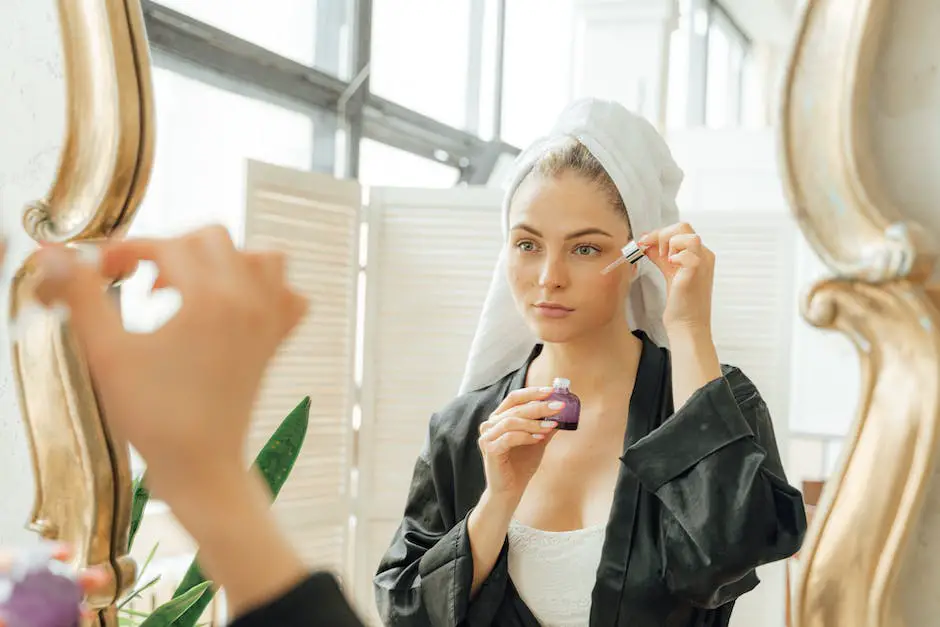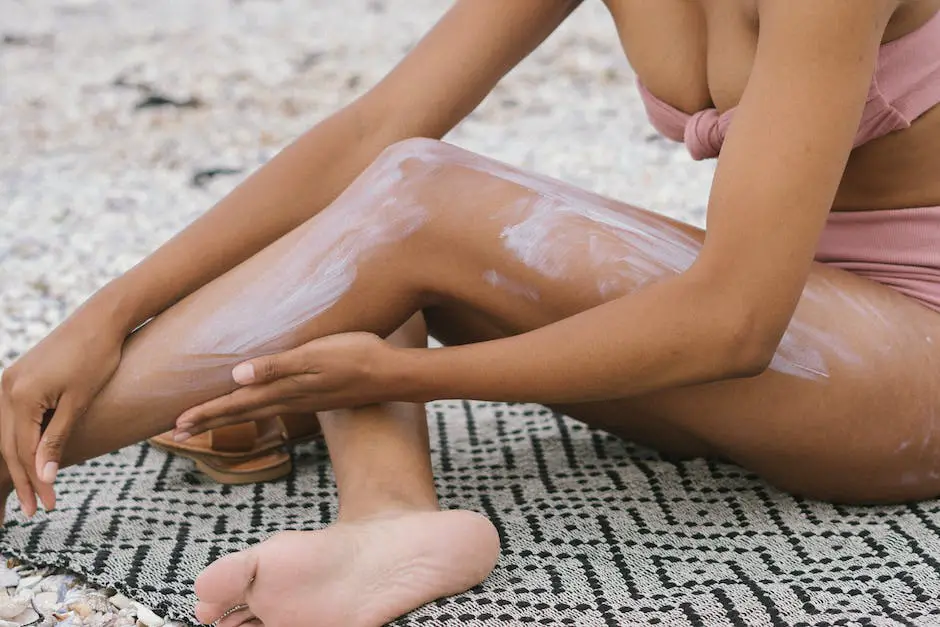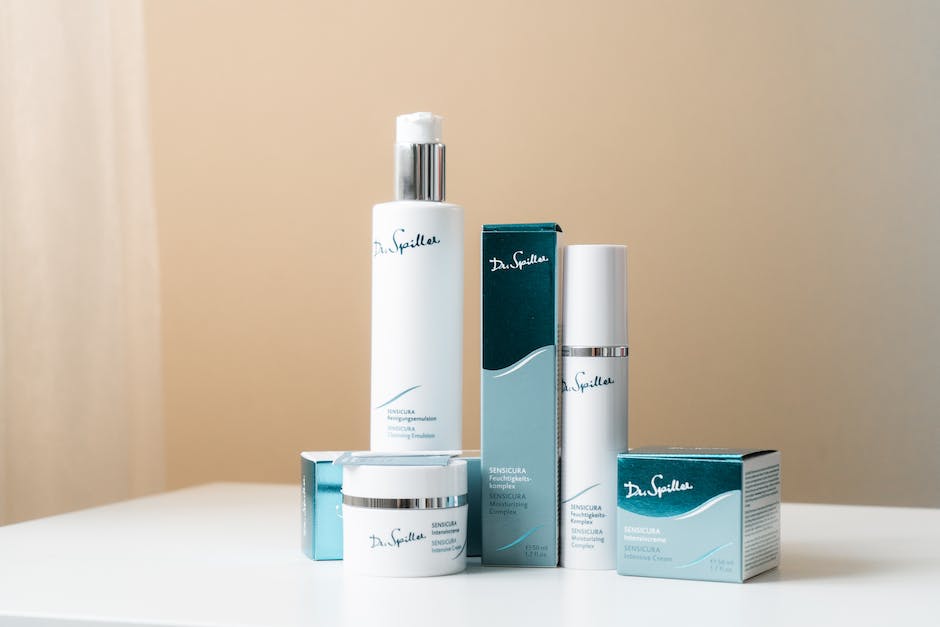Nurturing black skin to its full radiance requires significant knowledge and understanding. With its unique attributes, black skin calls for tailored care and attention. Establishing the basis of taking care of black skin requires a comprehensive understanding of the diverging skin types such as dry, oily, combination, and sensitive, which takes us to the heart of selecting the most effective skincare products and routines. Just like a delicate piece of art, black skin thrives when treated with the right elements, including cleansers, toners, moisturizers, and exfoliators that are rich in antioxidants, vitamins, and hydrating agents to repel dullness and hyperpigmentation. Remarkably, despite the extra layers of melanin, black skin still necessitates protection from the harsh UV rays, emphasizing the significance of sunscreen. Additionally, proper hydration and nutrition play a crucial role in preserving the health and vitality of black skin. Establishing good daily and monthly skincare routines that include regular consultations with a dermatologist further accentuates the overall care. Indeed, nurturing black skin is a journey of knowledge, love, consistency, and appropriate care.
Understanding Your Skin Type
Understanding Your Black Skin Type
To take proper care of black skin, you need first to understand its type. Black skin generally falls into one of four categories: dry, oily, combination, or sensitive. Each of these types has unique characteristics, and your skincare routine should be uniquely tailored to suit your specific skin type.
Dry Skin:
Dry skin often presents as rough or flaky and can feel tight, especially after washing. Care for dry black skin involves keeping moisture levels high. You should use gentle, non-drying cleansers, avoid using harsh soaps, and apply a heavy moisturizer immediately after bathing to lock in moisture.
Oily Skin:
Oily skin typically appears shiny and may have larger pores. Despite producing excess oil, oily skin still needs moisturizing – the key is to choose non-comedogenic (doesn’t block pores) moisturizers. Regular cleansing is also crucial to prevent buildup that can lead to breakouts. Use a gentle, oil-free cleanser, and don’t scrub too hard as it can stimulate more oil production.
Combination Skin:
Combination skin can be both oily and dry or normal at the same time. Usually, the T-zone (forehead, nose, and chin) is oily, while the cheeks can be dry or normal. For combination skin, you’ll need to address both oily and dry areas appropriately, which might involve using different products on different zones of your face.
Sensitive Skin:
Sensitive black skin may react to certain ingredients in skincare products, leading to irritation, itchiness, redness, or burning sensations. If you have sensitive skin, it’s best to stick with hypoallergenic and fragrance-free products. Always patch test new skincare products on a small area of skin before applying it to your entire face.
Remember that changes in diet, weather, and stress levels can affect your skin’s condition and appearance, hence your skincare routine needs to be adaptable based on these changing needs.
Selecting the Right Skincare Products
Once you identify your skin type, it will be easier to choose the right skincare products for your black skin. Look for skincare lines that are designed for your specific skin type. Always choose high-quality products that use natural ingredients. Avoid products that contain harmful substances like parabens, artificial fragrances, and colors.
Also, keep in mind that factors like age, lifestyle, climate, and overall health can affect your skin type. Therefore, you may need to evaluate and adjust your skincare routine periodically.
Establishing a Consistent Skincare Routine
A consistent skincare routine plays a significant role in maintaining the health and glow of your skin. Generally, a routine involves cleansing, toning, moisturizing, and applying sunscreen in the morning. At night time, you should cleanse, tone, treat with a serum or any targeted treatment, and then moisturize.
Remember to also consistently hydrate by drinking enough water and eating a balanced diet rich in fruits and vegetables. These habits will have a fantastic impact on your skin’s health and overall appearance.
With this knowledge, you can start to shape an effective skincare routine for black skin, playing to the strengths, and accommodating the weaknesses of your specific skin type. By taking these steps, your skin will maintain its natural beauty and glow for years to come.

Choosing Skincare Products
Understanding the Unique Needs of Black Skin
It’s important to note that black skin has unique characteristics that necessitate specific care. For one, it produces more natural oils, which can lead to oily skin and clogged pores if not properly managed. Black skin also has larger amounts of melanin, the pigment that provides color to the skin, hair, and eyes. Due to this higher concentration, black skin is particularly susceptible to hyperpigmentation, where sections of the skin become darker than the surrounding areas. Thus, it’s crucial to choose skincare products that are crafted specifically with these needs in mind.
Choosing the Right Skincare Products for Black Skin
When shopping for skincare products for black skin, the ingredients list should be your first consideration. Opt for cleansers, toners, moisturizers, and exfoliators that are rich in antioxidants, vitamins, and hydrating agents.
The Importance of Antioxidants
Antioxidants like vitamin C, E, and A help in fighting free radicals that cause early aging. They also reduce inflammation and hyperpigmentation, promoting even skin tone. Seeking out products that contain these antioxidants can make a significant difference in the health and appearance of black skin.
Hydrating and Nourishing Ingredients
To prevent dullness and dryness, choose products containing hydrating agents like hyaluronic acid, aloe vera, and ceramides. These components retain moisture within the skin, preventing dehydration and boosting skin’s overall radiance.
Vitamin-Rich Products
Vitamin-rich ingredients are paramount in maintaining the health of black skin. For instance, Vitamin B3, also known as Niacinamide, can help regulate oil production, reduce inflammation, and protect from sun damage -all common challenges for black skin.
Choosing Products for Exfoliation
Exfoliation should be a regular part of your skincare routine, as it can help mitigate oil accumulation and hyperpigmentation. However, it’s crucial to opt for gentle exfoliators that won’t damage or cause unnecessary irritation to the skin.
The Importance of Product Reviews and Brand Reputation
Lastly, it’s important to spend time researching products before purchase. Look at customer reviews and do some research into the brand’s reputation. There’s also merit in trying out samples, which allows you to gauge how well a product suits your skin without spending on full-sized versions.
Remember, every skin is unique so what works for one person may not work for you. Follow these tips, take your time choosing the right/suitable products, and your black skin will certainly glow.

Importance of Sunscreen
Understanding the Importance of Sunscreen for Black Skin
Effectively caring for your black skin goes beyond daily hygiene and occasional moisturizing. One of the most essential skincare practices, often overlooked by people with darker skin tones, is regular application of sunscreen. While darker skin contains more melanin, which offers some protection against the harmful UV radiation, it is not fully immune to the detrimental effects of sun exposure.
Melanin, the pigment that gives skin, hair, and eyes their color, provides an estimated sun protection factor (SPF) of about 13.4 for black skin, compared to 3.4 for white skin. However, even this natural protection is not sufficient to block all harmful UV rays. Prolonged exposure without proper sun protection can lead to various skin conditions including cancer, premature aging, hyperpigmentation, and triggering of inflammatory skin diseases.
Choosing the Best Sunscreen for Black Skin
When it comes to choosing the appropriate sunscreen for your skin, understanding the specifics of different options available in the market is vital. For black skin, skincare experts usually recommend a broad-spectrum sunscreen with an SPF of 30 or higher. Broad-spectrum sunscreens protect against both UVA and UVB rays, with the former causing premature skin aging and the latter causing sunburn. The effectiveness of the sunscreen also significantly depends on proper and consistent application.
While browsing through sunscreen options, it is also essential to consider the “reef safe” or “mineral” sunscreens. These sunscreens contain active mineral ingredients like zinc oxide or titanium dioxide, which are safer for the environment.
A common misconception among people with black skin is the white cast left behind by some sunscreens, making them averse to using such products. However, many brands now offer sunscreens that blend seamlessly into the skin regardless of its color. Look for ‘sheer’ or ‘transparent’ on the packaging or opt for tinted sunscreens that match your skin tone.
Establishing a Sun Protection Routine
Using sunscreen should not be confined to sunny summer days. UV rays penetrate through the clouds, so it is important to include sunscreen in your daily skincare routine all year round. Apply a broad-spectrum sunscreen 15-30 minutes before stepping out in the sun and reapply every 2 hours or after swimming or sweating.
Alongside using sunscreen, other sun-protective measures should also be taken. Wear clothes with a tight weave, use a hat with a wide brim, and sport sunglasses to protect your eyes.
In essence, for black skin, sun protection is an indispensable element of skin health. Use broadly protective sunscreen, reapply diligently, and complement with protective clothing to ensure you are well defended against the damaging effects of the sun.

Proper Hydration and Nutrition
Emphasize Proper Hydration
Hydration is a crucial element that plays a significant part in maintaining healthy black skin. When the body is well-hydrated, it will result in skin that is also fully moisturized. Drinking enough water daily is a simple but often overlooked routine needed to maintain skin health. On average, you should aim to consume at least 8 glasses of water per day. Understand, though, that this can vary depending on your age, sex, weight, and activity level.
Water helps purify your body by eliminating toxins, which can result in reduced instances of skin-related problems like acne and increased overall skin clarity. Consistent hydration improves the elasticity and suppleness of your skin, significantly reducing dryness and flakiness. Essentially, keeping the skin hydrated can help to maintain a fresh, radiant, and youthful appearance.
Implement Balanced Nutrition
Along with hydration, proper nutrition plays a quintessential role in maintaining a healthy skin complexion. A balanced diet rich in fruits, vegetables, and healthy fats can provide the necessary nutrients for healthy skin. It would be best if you strived to balance all the essential food groups in your meals. This includes proteins, carbs, and good fats to supply your body and skin with all the necessary ingredients to repair, renew, and stay healthy.
Fruits and vegetables are rich in antioxidants, which help rid your body and skin of free radicals, harmful entities that can cause significant skin damage. Consuming a diet high in antioxidants can greatly improve the health and appearance of your skin.
Opt for fruits such as oranges, strawberries, and kiwis that are packed with vitamin C, and leafy greens and nuts that provide vitamin E. These vitamins protect your skin from scarring, help in the healing process, and fortify your skin’s defense against the sun.
Healthy fats are just as critical in a balanced diet. Notably, avocados, fish, and nuts contain essential fatty acids, which are necessary for maintaining skin health. A deficiency in these fats can lead to dry, itchy, and flaky skin. Thus, incorporating these foods into your meals can leverage the benefits of these fats to your skin’s advantage.
Additionally, lean proteins such as poultry, tofu, and beans, play a significant role in repairing cells that have suffered from free radical damage. Including a suitable amount of protein in your diet promotes radiant and healthier skin.
In conclusion, maintaining healthy black skin is greatly impacted by proper hydration and a balanced diet. Through consistent and intentional efforts to ingest enough water daily and consume meals rich in fruits, vegetables, and healthy fats, your skin can stay glowing, moisturized, and healthy.

Daily and Monthly Routines
Maintaining a Good Daily Routine
A proper daily skincare routine is necessary to keep black skin healthy and glowing. Start with a gentle face wash to remove impurities and excess oils without stripping the skin’s natural oils. Skin care professionals often recommend using a cleanser with a low pH, as they are less likely to irritate the skin.
After cleansing, apply a toner to restore the pH balance of your skin. Opt for an alcohol-free toner rich in antioxidants and hydrating agents to nourish the skin. The goal of this step is to maintain the skin’s natural balance while providing additional hydration.
Next, apply a moisturizer to lock in the moisture and keep your skin hydrated throughout the day. Look for moisturizers containing Hyaluronic acid and SPF to protect black skin from harmful UV rays.
To address dark spots and hyperpigmentation, using a serum rich in Vitamin C may help. Apply this to adequately cleansed and toned skin every morning.
Applying an eye cream should also be part of your daily skincare routine. The skin around the eyes is delicate and prone to wrinkles, so regular application of eye cream can help maintain its elasticity and minimize the signs of aging.
Consistent Exfoliation and Mask Application
Exfoliating your skin once or twice a week helps to remove dead skin cells and encourages cell turnover, which can improve the skin’s overall glow and texture. Choose an exfoliator with small granules to avoid scratching or damaging your skin.
Applying a mask specific to your skin’s needs can also help maintain good skin health. A hydrating mask can be beneficial if your skin is prone to dryness. If concerned about oil or breakouts, a clay mask will help absorb excess oils.
Monthly Skin Care Routine: Professional Treatments
In addition to daily routines, black skin care also requires professional treatments for optimal results. Consider scheduling a monthly visit with your dermatologist or skin care professional for a deep-cleansing facial or microdermabrasion treatment, depending on your skin needs.
Regular Dermatologist Check-Ups
Regular check-ups with a dermatologist are essential for maintaining healthy skin. They can provide a comprehensive skin examination and spot any potential problems or changes early on. For those who have skin issues such as acne, hyperpigmentation, or eczema, regular check-ups can help manage these conditions and prevent them from worsening.
It’s essential to remember that everyone’s skin is different – what works well for one person might not work as well for another. It’s important to listen to your own skin and personalize your skin care regimen accordingly.

There is no magic potion for perfect skin, but understanding your skin type, using the right skincare products, protecting it from the sun, maintaining proper hydration and nutrition, and adhering to daily and monthly skincare routines can significantly impact your skin’s health and appearance. Embracing these essential practices can keep black skin radiant, healthy, and strong against common skin issues. Nourishing your skin is akin to nourishing your body; it’s not merely about the products you apply, but also the lifestyle you lead. Your skin, particularly black skin, is an outward reflection of your inner health and well-being. Let’s treasure it by gifting it the proper care and attention it needs to thrive. Intertwining the essential components of skincare, nutrition, and healthy habits will guide you on maintaining the radiance and vitality of your black skin.

Leave a Reply